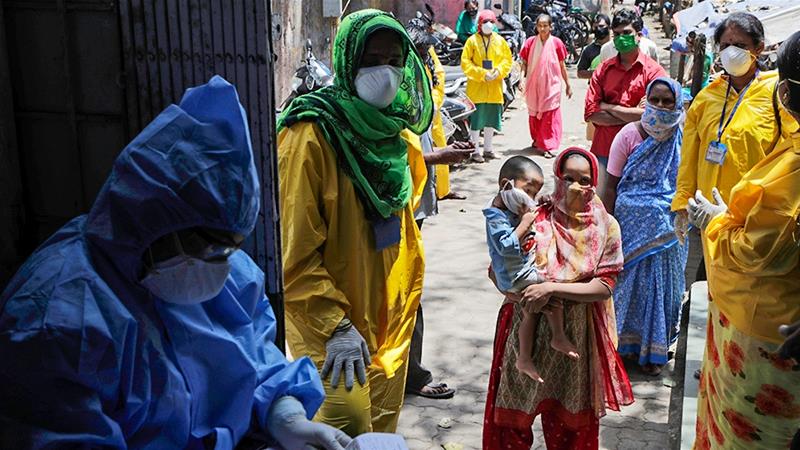When the beating began on March 25, Parvathi* tried the usual things first, but things were different under the nation-wide coronavirus lockdown.
As her husband began beating her, she would run out into the narrow lanes of the slum she lives in to call for help from her neighbours, a strategy that usually worked. But a police barricade had been erected at the entrance of the street, and neighbours called to her from their homes to stay indoors.
The 45-year-old cook in the southern Indian city of Chennai had become accustomed to physical abuse from her unemployed, alcoholic husband in the early years of her marriage, but the violence had diminished recently, largely because of the salary she brought home every month, she said.
Under the lockdown, Parvathi’s employer asked her to stay home. She was not being paid, and her husband, deprived of his daily drink, was in a foul mood.
Half an hour later, she ran out again, this time working up the courage to walk to the police barricade, and asked to be taken to the police station.
“Go home and sort it out,” the officer on duty told her from behind a mask. “The police and courts are shut for 21 days.”
India’s National Commission for Women (NCW) on Friday said it registered 587 domestic violence complaints between March 23 and April 16 – a significant surge from396 complaints received in the previous 25 days between February 27 and March 22.
One in six new complaints of domestic violence was made over a relaunched WhatsApp number.
That WhatsApp number had been out of use for some time, an NCW official told Al Jazeera on condition of anonymity, suggesting there could have been more complaints that never got through.
The NCW relies on women to report domestic violence on its fixed helpline numbers and through the post, two modes of communication that have been closed since the lockdown.
The Commission then publicised the email address of its members and began receiving complaints on social media and through its online portal. This in a country where only one-third of women have access to the internet.
Feminist economist Ashwini Deshpande analysed NCW data for the months of March and April in 2019 and 2020.
She calculated the average complaints per day and found that “there is already a jump in complaints related to domestic violence and the right to live with dignity, and a smaller increase in rape or attempt to rape and sexual assault”, all within the home.
Even in normal times, women facing domestic violence in India rarely turn to the police.
One-third of women in India’s 2015-2016 National Family Health Survey (NFHS) said they had experienced domestic violence, but less than 1 percent of them sought help from the police.
Their neighbourhood or community is also not always a refuge for women facing abuse.
According to the NFHS study, 52 percent of women and 42 percent of men believed that a husband is justified in beating his wife. Showing disrespect towards the in-laws topped the list of reasons respondents deemed it acceptable to subject a wife to a beating.
And these are not normal times.






 WhatsApp us
WhatsApp us 

